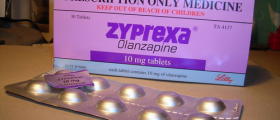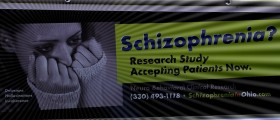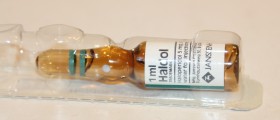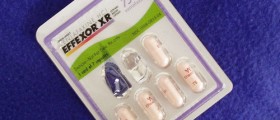
The dosage of the medication varies from one patient to another and it should be adjusted to the needs of the patient for an optimal therapeutic result. Initial dose depends on the patients’ age, any other medical condition or medication and severity of schizophrenia. Elderly and patients that already had side effects using some other antipsychotic drug usually start with smaller doses of haloperidol.Intramuscular injections of haloperidol may cause the tenderness, itchiness and swelling at the injection spot.
Nervous system side effects are common and include: sedation, drowsiness and seizures in rare cases. Drowsiness is common symptom for the beginning of the haloperidol therapy and it resolves after some time. Pseudo-parkinsonism cases are reported.
Dystonia is also a side effect of the haloperidol use. It includes muscle rigidity twisting of the neck so that the head is being tilted, abnormal body posture and tongue protrusion. This is usually not a permanent condition is stops once the medication is stopped but severe cases need to be treated.
Patients using this medication might suffer from tardive dyskinesia. Almost 50% of the haloperidol patients experience this condition, followed by involuntary, recurring movements and it might be irreversible. Older women and the patient on and off the medications have the higher risk of developing tardive dyskinesia.
Neuroleptic malignant syndrome (NMS) is connected to the use of haloperidol and is expressed with fever, changed conciusness, muscle rigidity and autonomic dysfunction. This condition might be fatal, and because of that, patients with this syndrome should stop haloperidol as soon as possible. NMS is treated with dantrolene.
Other side effects of haloperidol include: dry mouth, blurred vision, urine retention and constipation. The drug may affect the liver function, therefore liver tests are recommended during the treatment with haloperidol. It may provoke hyperprolactinemia, galactorrhea and sexual problems in male patients. Haloperidol is affecting the blood, leading to reversible leucopenia and leukocytosis but is rarely connected to the cardiovascular problems in schizophrenia patients. Reapiratory and musculoskeletal side effects are rare.
This medication should not be used to treat psychotic episode in dementia patients. Some of these patients might experience sudden death, heart failure or pneumonia. Patients allergic to haloperidol should not use this drug. Haloperidol affects you reactions and thinking. Therefore, be careful while driving or doing anything that requires attention. Avoid the use of alcohol it might increase the possible drowsiness caused by this medication. When using haloperidol get up slowly whenever getting up from sitting or lying to avoid dizziness and possible fall.
Any previous medical condition, concerning your heart, liver, kidney or the thyroid gland should be reported to your doctor. Epilepsy or seizure, low levels of magnesium or kalium (potassium) in the blood, or family history of “long QT syndrome”, present Parkinson’s disease are the conditions your doctor should be aware of. Any uncontrolled shaking (tremor) of muscles in the eyes, tongue, jaw or neck should be reported to your doctor.
















Your thoughts on this
Loading...